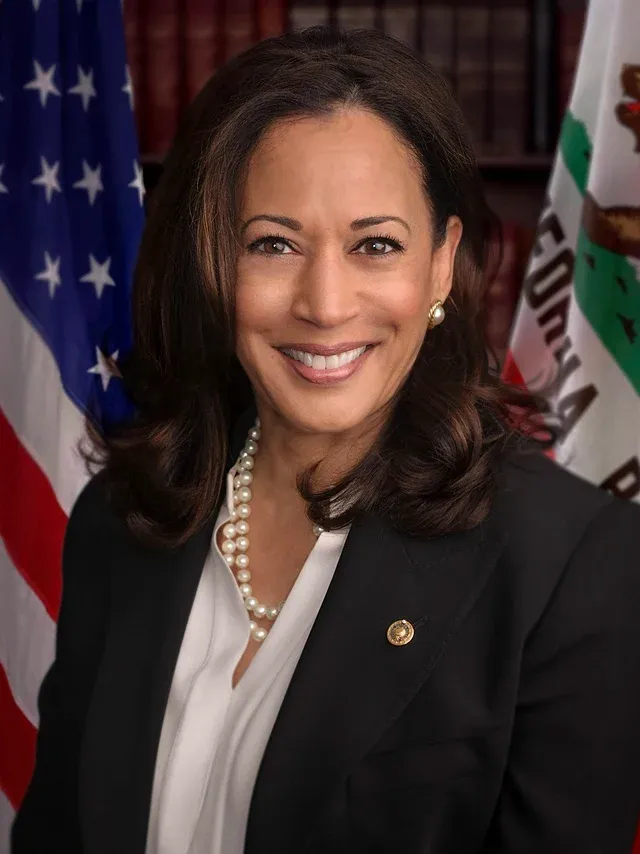For health equity, Kamala is by far the better choice

I’ve seen what bad policy and laws can do to reproductive access. In February, a ruling in Alabama temporarily blocked our access to IVF care.
A set of politics changed our reality — closed the door on care we payed thousands of dollars to access.
Thankfully, care later resumed after a set of laws were passed, but I fear what will happen if hard right views are given more power. I fear for the people without money or power and what this will mean for them.
I fear for the access to abortion, contraception, and IVF. Right now there are 14 states with a total abortion ban (Alabama is one of them). These states had 63 clinics in 2020. In 2023, 765 clinics were providing abortion services in the United States, a 5% decline from 807 in 2020.
But this hasn't declined the amount of abortions in the U.S. In fact, it has only increased. An estimated 1,037,000 abortions were provided by clinicians in states without total bans in 2023, an increase of 11% from 2020, when the total was 930,160. More than 166,000 US abortion patients traveled to other states to obtain care in 2023. Half as many (81,000) did so in 2020. (Guttmacher Institute provided all numbers.)
It should be emphasized that these restrictions and bans on reproductive and sexual health will deepen, and have deepen, the impacts of inequalities driven by insurance access, income, and provider care bias. This will affect pregnant people and their families who are people of color, same-sex couples, low-income individuals, transmen, non-binary people, disabled people, and others.
Reproductive and sexual health are at stake in the next few months — we should aim to create an America that pushes for health equity and healthcare justice.
Provide access, provide care, protect both.
Kamala Harris has stood behind reproductive rights and sexual health. Earlier this year, she was the first VP to visit an abortion clinic at a Planned Parenthood clinic in Minnesota.
Before her Reproductive Freedoms Tour, she said: “Extremists across our country continue to wage a full-on attack against hard-won, hard-fought freedoms as they push their radical policies – from banning abortion in all 50 states and criminalizing doctors, to forcing women to travel out of state in order to get the care they need. I will continue to fight for our fundamental freedoms while bringing together those throughout America who agree that every woman should have the right to make decisions about her own body – not the government.”
If you care about these issues, you should vote for her, show up for her, and any candidate who supports health equity, especially equality for reproductive and sexual care.
Beyond reproductive and sexual care, Harris has a good track record towards healthcare. See the rundown in this article from Statnews on why Kamala Harris's views are more left than Biden's ever were.
Kaiser Health News also put it succinctly:
Harris, on the other hand, became the first vice president to visit a clinic run by the Planned Parenthood Federation of America. She undertook a nationwide tour focused on reproductive rights. And when Sen. JD Vance of Ohio was named Trump’s running mate, Harris used her next campaign appearance to criticize him for blocking protections for in vitro fertilization.
It's also a good reminder that in 2019, Kamala pushed for a version of Medicare for All, as she opens the a Medium post:
One of the problems with our politics is that it often demands 60-second sound bites or slogans to answer complex questions. There is perhaps no more complicated or more personal issue for Americans than health care. I know this from my own personal life, caring for my mother as she battled colon cancer. And I also know it from talking to so many Americans in this campaign — seniors and union members, young people and parents, workers and caregivers. No panicked parent should hold a sick child while worrying about an expensive hospital bill. No senior should have to cut their pill in half just to make ends meet.
This give me vibes of Bernie Sander's Medicare For All Acts, and the bill's iterations. He even reintroduced the bill in 2023. You can read the executive summary, HERE.
The idea of Medicare for all has history that dates back to 2003. Bernie has been promoting it, bringing it into popular conciseness since 2016. Three good reads on this:
Whatever happens, I vote for a better system that takes care of more people. A system that provides access, provides care, and protects both.


Member discussion